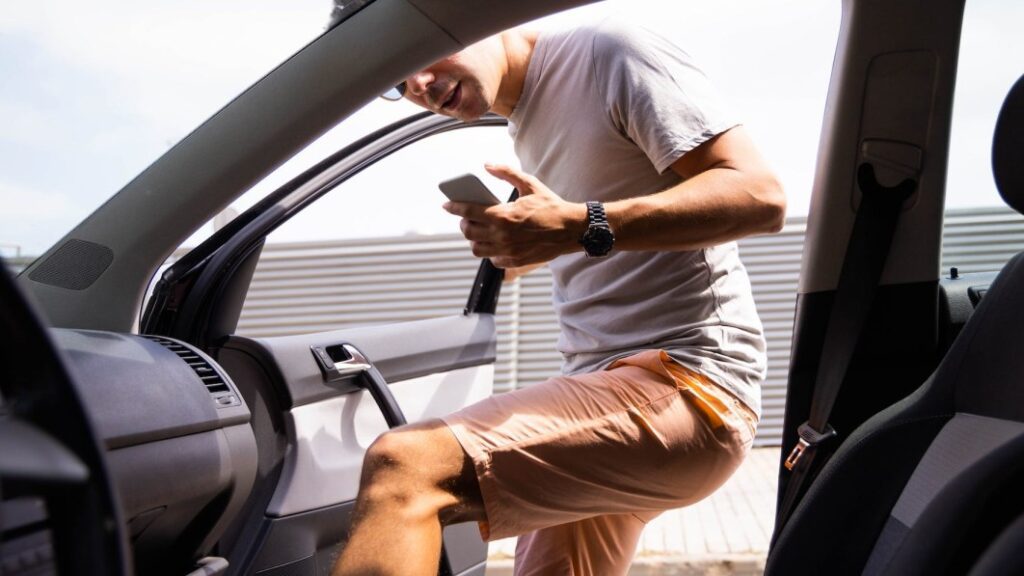A man was forced to close his car-sharing app after criminals used it for drug deals and illegal driving

Stock image of a man getting inside a car share using a mobile phone app. Getty Images
An entrepreneur launched a car-sharing app based on Airbnb’s business model, per the BBC.
But Andy Hibbert was forced to close it after criminals dealt drugs out of the cars.
“Once criminals learn a weakness, it’s pretty viral in the underworld,” Hibbert told the BBC.
A man launched a car-sharing app based on Airbnb’s business model — but was forced to close it after criminals used the cars for drug deals and illegal driving, according to the BBC.
Andy Hibbert, an entrepreneur based in London, started the app in 2016 under the name Karshare to “create a world where we never have more cars than we need,” per the company’s website.
After signing up on the app, members could list their cars on the website, similar to renting out properties on Airbnb.
The company reached a peak of 40,000 users, but Hibbert found out that criminals were taking advantage of the service to deal drugs, often without a driving license or with driving convictions, per the BBC.
Despite security checks in place, criminals would bypass the measures by bribing people to sign up for a car for them and using still pictures to fool facial-recognition software, per the outlet.
Karshare and Hibbert didn’t immediately respond to requests for comments from Business Insider.
In addition to drug dealing, criminals also borrowed cars and then crashed them, or claimed they were stolen, which led to hefty costs for the company, he said.
Hibbert told the outlet that there were only about 30 incidents like this out of 19,000 rentals, but that dealing with them cost time and money.
It also put people off from signing up their cars to the app, the BBC said.
“Once criminals learn a weakness, it’s pretty viral in the underworld,” Hibbert told the outlet.
Other sharing economy-style companies have also faced similar challenges, like fake listings on Airbnb or Deliveroo riders subletting their accounts.
Having also faced the challenge of operating during the COVID-19 pandemic, and investment drying up after the Russian invasion of Ukraine, Hibbert closed the company for good this summer, per the BBC, seven years after launching the website.
“It is with a heavy heart that, despite all the tremendous support and the mighty efforts of our team, I am writing to say that Karshare is ceasing operations,” Hibbert wrote in a LinkedIn post in July.
He added: “Even though we did not reach our destination, the journey was incredible.”





